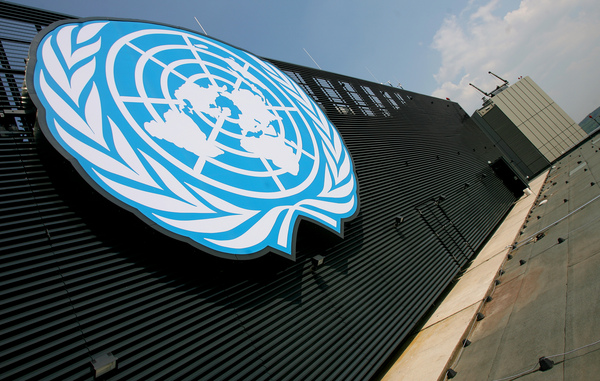Today, Monday, September 10, marked the beginning of the twenty-first session of the UN Human Rights Council (HRC), taking place at its headquarters in Geneva. The session’s events will continue until September 28, 2012.
Non-governmental organizations play a critical role in bringing the human rights situation in different countries to light and in confronting governments based on their violations of these rights. As such, the HRC provides such organizations with the opportunity to review rights conditions through a system of written and oral interventions. The Cairo institute for Human Rights Studies (CIHRS) is one of the organizations that take advantage of this opportunity to discuss a broad range of rights issues affecting the countries of the Arab world. Due to its consultative status at the United Nations, CIHRS is able to provide observations and testimonies about the situation of rights in the Arab region through its interventions and reports to the HRC.
In preparation for this session of the HRC, CIHRS drafted five written interventions to be presented to the HRC. Among the issues dealt with in these written interventions isthe situation of human rights defenders in Saudi Arabia and other Gulf states, including their subjection to judicial harassment and other reprisals. The interventions also address the situation of human rights in Lebanon and Sudan, where the rights situations have deteriorated significantly, as well as the report of the Universal Periodic Review of Morocco, which failed to adequately address the severity of the rights situation in Western Sahara.
As for the oral interventions, CIHRS is scheduled to participate in a number of meetings HRC at which it will deliver such interventions to address the rights situations in Egypt, Bahrain, Tunisia, Morocco, Libya, Syria and the occupied Palestinian territories. These interventions will focus on the most prominent human rights violations witnessed in these countries, as well as the demands related to the implementation of some of the resolutions of the Council or its subsidiary bodies to improve conditions in those countries. CIHRS will also comment on the most evident violations against citizens and activists in these countries as described in the reports of fact-finding missions and of the Special Rapporteurs. For example, CIHRS is expected to present its observations regarding the report of the fact-finding mission to Syria as well as on the follow-up report of the UN Secretary General about the fact-finding mission on “Operation Cast Lead” in the Gaza Strip.
This session will also include the adoption of the final recommendations of the four Arab states which recently underwent the Universal Periodic Review process (UPR): Bahrain, Morocco, Tunisia, and Algeria. CIHRS will therefore present a further oral intervention regarding the commitment of the four states under review to implementing all UPR recommendations and urging the international community to pressure these governments to accept these new recommendations related to improving the status of human rights in their countries.
During this session, CIHRS will also organize a series of meetings and side events, which will be attended by state delegations and representatives of regional and international non-governmental organizations. On 14 September, CIHRS will hold a side event in collaboration with the International Federation for Human Rights (FIDH) on the situation of human rights in Sudan, including the continued humanitarian crisis which is exacerbated by unresolved issues over the borders between Sudan and South Sudan and the recent crackdown on peaceful protestors, civil society activists, and political opposition leaders, and the media in Sudan, and the meeting will conclude by presenting a set of recommendations to improve the situation of human rights in Sudan. On 18 September, CIHRS will convene another side event in cooperation with the Bahrain Center for Human Rights, the Gulf Center for Human Rights, and CIVICUS to discuss the situation in Bahrain in light of the recent judicial rulings against a number of prominent human rights defenders and activists in the Kingdom.
Indeed, special attention will be paid to the state of human rights in the Gulf states in general at a third side event, held in cooperation with the Gulf Center for Human Rights and the Bahrain Center for Human Rights. This side event will deal with the evident deterioration of the standards of human rights in these countries, seek to identify the nature of violations committed against rights defenders in the Gulf due to their work to protect human rights, and make recommendations in this regard.
This session will also include the first report of the Special Rapporteur on the Promotion of Truth, Justice and Reparation and Guarantees of Non-Repetition, an occasion on which CIHRS will present an oral intervention on the developments of the transitional justice processes in Libya and Egypt on September 11. In addition, a special seminar on the same subject will be held on September 12 in cooperation with 13 international and regional organizations.
The Human Rights Council is the main body of the United Nations concerned with human rights issues. The HRC holds three regular sessions per year to discuss human rights issues in various countries around the world, and it is made up of 47 member countries, which are elected from their regions for limited terms. The first session of the HRC was convened on June 19, 2006.
- Attached are the written interventions submitted by the CIHRS.
- Human Rights Violations and Conflict Increasing in Lebanon as Conflict from Syria Spills-over into Country
- Ongoing crackdown on peaceful demonstrators, Human Rights defenders and journalists
- Report issued by the Working Group for the Universal Periodic Review _UPR_ of Morocco and the Issue of Western Sahara
- Saudi Human Rights Defender risks imprisonment for Cooperating with the UN Human Rights Council
- Alarming increase in repression and attacks against civil society in the Gulf region
Share this Post

